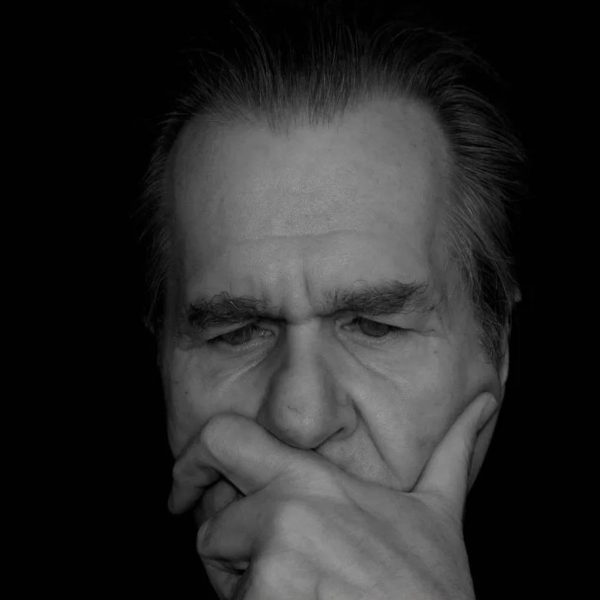

Professional Therapist Abe Kass MA RSW RMFT
Abe has helped thousands of individuals, couples, and families for twenty-five-plus years. When it comes to relationship expertise — Abe is the real deal and can be trusted!
Author: Professional Therapist Abe Kass MA RSW RMFT
‘Bad behavior’ can be stopped. But first, you need to know what behavior is injuring your love. This is why understanding the signs of an unhealthy relationship is so important.

You ask:
Let’s answer these questions by learning what science says about ‘unhealthy relationships.’
Finding the road to a healthy relationship is difficult when you’re looking for love in the wrong places.
To find something, you need to know where to look! To know what a healthy relationship is, first, you need to know what it is not!
In a study published in Personality and Social Psychology Bulletin*, researchers found that negative behaviors determine the quality of a relationship.
Evaluating the results of six scientific studies involving 6,500 people, researchers concluded deal breakers (things that break the relationship) are not what you want in a relationship, but more of what you don’t want in a relationship. Gregory Webster, one of the researchers, stated: “We have a general tendency to attend more closely to negative information than we do to positive information.”
Knowing the signs of an unhealthy relationship is essential to a good one!

In plain language, this means if you behave like an ‘idiot,’ you will mess things up.
MY GOOD ADVICE FOR YOU IS… Avoid hurting your partner.
For better or worse, your partner will remember negative interactions for a very long time, and it will take a disproportionate amount of positive interactions to neutralize the negative ones.
Simply, the price of negative interactions are too high if you want your relationship to develop and thrive.
Here are 10 characteristics of unhealthy relationships that are often overlooked and are often the deal breakers (things that break the relationship) that determine whether the relationship will be happy and last or otherwise.
One of the most important aspects of a healthy relationship is how you handle anger. You will inevitably get angry at your partner occasionally, but it’s important to avoid letting that anger become resentment or emotional abuse.
Anger is the single most unhealthy behavior of all the characteristics of an unhealthy relationship.
Rather than let repeated anger outbursts ruin the love and mutual respect between you and your partner, let your anger turn into disappointment and then, when appropriate, respectfully and calmly share your disappointment with your partner. This is the only reasonable way to express your anger constructively and avoid creating an unhealthy relationship.
It is important to avoid rejecting your partner.
This doesn’t mean you have to agree on everything, but you should still be able to talk, have sex, and do things together.
If you’re constantly rejecting your partner, it can lead to tension, resentment, and giving up, which are all signs of an unhealthy relationship.
Instead, try to find ways to compromise and connect. This will help create a stronger, more positive bond between you and your partner and make it more likely that together you will be able to weather any storms that come your way.
To avoid having an unhealthy relationship, it is important to be sensitive to your partner’s feelings. If you are indifferent to how they feel, it will make them feel as though you do not care about them.
Furthermore, it is essential always to make your partner feel he or she is the number one person in your life. This means being understanding, supportive, loving, and showing appreciation. Your partner needs these emotional nutrients to feel healthy and positive around you.
You need to be sensitive to your partner’s feelings if he or she is to feel they are the number one person in your life.
Arguments lead to an unhealthy relationship. If you want to have a healthy relationship with your partner, it is important to be agreeable, positive, and easy-going. Your partner will not want to be around you if you are always argumentative.
Being agreeable means when your partner speaks, you seek out those things that you agree with and comment on them.
Being positive means that you are optimistic and upbeat, even when things are difficult.
And being easy-going means that you are flexible and adaptable, able to go with the flow.
If you can focus on being these things, your partner will want to be around you more, and your relationship will be healthier overall.
Many people think that being foolish means you’re not serious about the things that are important to you, but that’s not necessarily true.
If you focus on the wrong things and you cannot be serious about the things that matter, your partner will not feel comfortable with you, and your relationship will be unhealthy.
It’s important to spend your time well and focus on the things that are important to your relationship to have a healthy one.
If you want to have a healthy, happy relationship with your partner, it is important to be responsible. That means being financially responsible, doing your share of the work around the house, and being emotionally available.
When you are irresponsible, you strain your relationship and make it harder for your partner to trust and confide in you.
For a happy and healthy relationship, make sure that you are a responsible member of your family community.
If you are physically and emotionally cold, your partner will feel you don’t care about him or her — this is a sure sign of an unhealthy relationship.
A good relationship depends on two people connecting. This connection is primarily physical and emotional. If you’re not physically and emotionally available to your partner, he or she will feel rejected, unimportant, and unloved.
To have a healthy relationship, it’s important to be physically and emotionally present for your partner. You must be available to listen, talk, and nurture with your time, affection, and attention.
Relationships need to be fair and equitable. In a healthy relationship, both partners contribute equally. If one person continually does more than the other, it creates an imbalance that can lead to tension and resentment.
If you’re lazy, try to be more active and involved in your relationship. This will help create a more balanced sharing of work and responsibility and prevent your partner from feeling like they are being taken advantage of.
There are many ways to be a more active and involved partner. Find what works for you and your relationship. You and your partner do not need to be doing the same things. You can agree to delegate work and responsibility based on interest, skill, and aptitude. In the end, the effort must seem fair to both of you.
With effort and commitment, you can have a healthy, balanced relationship where your partner feels appreciated, valued, and supported.
If you are negative, complaining, and always finding fault, whether you intend to or not, you are pushing your partner away and creating an unhealthy relationship. Your partner may think they can never please or make you happy. This mindset will lead to tension and conflict in the relationship. Instead of always finding fault, try to focus on the positive aspects of your partner. Appreciate them for who they are and what they do for you. Express your gratitude regularly. When you truly cherish and appreciate your partner, they will feel loved and supported, leading to a stronger and healthier relationship.
In any relationship, sharing your thoughts and feelings is important. However, there is a difference between being open and honest and being opinionated and overbearing. If you are always expressing your opinions, dominating every conversation, and talking over your partner, it will be a real turn-off for him or her. He or she will think that you only want to hear yourself talk. To avoid an unhealthy relationship, it is important to learn how to listen as well as how to speak. Only then will you be able to truly communicate with your partner. Showing that you are interested in hearing what your partner has to say will go a long way to creating a strong, healthy relationship.
Unhealthy relationships are created when individuals don’t avoid the 10 deal-breaking behaviors.
If any of the above signs of an unhealthy are present in your relationship, it may be time to figure out what you can do to turn things around and replace the deal-breakers with love, care, and respect.
I know relationships are difficult. How many times have you said something or done something that you have regretted?
When it comes to bad behavior, sometimes the consequences can be disastrous.
Word processors have an undo button, so you can quickly and easily reverse the error if you make a mistake.
Imagine how good it would be if you had such a button to push to undo a relationship mistake!
If you had a relationship undo button, likely five minutes after you did any of the following, you would push it:
The list could go on. There are many ways bad behavior is expressed.
And more unfortunately, WE DO NOT HAVE A RELATIONSHIP UNDO-BUTTON, as does a computer. When we say or do something, it cannot be taken back.
Yes, you can apologize when you are wrong, and you should. However, rarely does an apology erase the pain your partner feels.
The Takeaway:
Think before you speak or act. Make sure your interactions are without anger, cruelty, criticism, putdowns, threats, insults, and the like. Otherwise, the mess you make may be permanent.

Consider This Analogy:
You are at a wealthy friend’s party in his beautiful home. Your host hands you a fine crystal goblet and then fills it with expensive champagne.
You are thrilled to be given such a delightful drink and eagerly anticipate its pleasing taste.
You lift the goblet to your mouth, and just before it touches your lips, you notice a dead fly floating on the surface.
You are very repulsed. You need to restrain yourself from dropping the glass to the floor.
What sticks in your mind, likely for the rest of your life, is the memory of this dead fly floating in the champagne, not the crystal goblet, the costly champagne, or the beautiful home you enjoy.
It is human nature to hold on to the negative more than the positive. It is a setting within our brains, and it does not distinguish between that which is rational or irrational, that which is reasonable, and that which is unreasonable.
Simply, when an experience is unpleasant, this is what we remember. Unhealthy behaviors between you and your partner are rarely forgotten — at least not for a very long time.
Research has shown that one negative interaction, such as anger or criticism, can nullify five positive interactions.**
Researchers observing couples in action have seen how just a few negative comments can spoil an entire day or week. For the most part, daily communication makes or breaks a relationship. The challenge is to produce the greatest number of positive interactions and the fewest negative interactions.
Living in harmony with your partner requires that you avoid all unpleasant interactions.
For example, when you direct anger at your partner, this will be kept in his or her memory for a very long time.
When extreme anger is expressed repeatedly, this memory is lumped together with all previous anger memories. Accumulated anger then erases all the previous positive memories and experiences.

It is worth noting that when there is emotional abuse, verbal abuse, physical abuse, controlling behavior, domestic violence, or serious mental health issues, there is no way to balance the relationship with positive behavior.
In such circumstances, it’s important to get outside professional help to assist you with your serious relationship problems.
If there is emotional abuse, verbal abuse, physical abuse, mental health issues, or domestic violence in your relationship, safety takes priority over being with your partner.
You can only build and enhance your relationship when your partner behaves as a respectful and reasonable person. Even though he or she may make occasional mistakes, they are of good character.
Unhealthy relationships can be avoided with emotional self-control.
Emotions can be thought of as musical notes. If the musician is good, they will carefully select the notes in their mind before expressing them to make their music pleasing.
So too, if we are to be emotionally pleasing to others, our emotions, like musical notes, must be carefully selected and arranged and only then expressed.
Carefully arranging our daily emotions is like composing music. Expressing harmful emotions, with very few exceptions, will always be a sour note. Just as people avoid a “bad” musician, they also avoid the “ill-behaved person.”
“But how can I control what I feel?” you may ask.
Yes, you cannot control what you “feel,” but you can control what you think, say, and how you behave. You can control how you express yourself to others. This is the key to controlling your emotions by choosing which ones you give life and which ones you let fade away and die. You can choose to let hurtful thoughts die before they become hurtful words and actions.
Relationships have very exacting requirements. These requirements include giving preferential treatment to one’s immediate family as well as interacting carefully with all your family members, especially one’s partner.
The only way to avoid a bad relationship is to stop all bad behavior.
Emotions can be thought of as musical notes. If the musician is good, they will carefully select the notes in their mind before expressing them to make their music pleasing.
So too, if we are to be emotionally pleasing to others, our emotions, like musical notes, must be carefully selected and arranged and only then expressed.
Carefully arranging our daily emotions is like composing music. The expression of harmful emotions, with very few exceptions, will always be a sour note. Just as people avoid a “bad” musician, they also avoid the “ill-behaved person.”
“But how can I control what I feel?” you may ask.
Yes, you cannot control what you “feel,” but you can control what you think, say, and how you behave. You can control how you express yourself to others. This is the key to controlling your emotions by choosing which ones you give life and which ones you let fade away and die. You can choose to let hurtful thoughts die before they become hurtful words and actions.
Relationships have very exacting requirements. These requirements include giving preferential treatment to one’s immediate family as well as interacting carefully with all family members, especially one’s partner.
The only way to avoid a bad relationship is when you stop all bad behavior.
Full sexual and emotional intimacy can only be established when ALL characteristics of an unhealthy relationship are eliminated.
Sexual intimacy between two consenting individuals brings the couple to a state of completion. A couple’s intimate union is the significant expression of their unity and love in the physical world.
Romantic partners build and maintain a loving connection that spreads throughout every other aspect of their relationship.
The love generated by physical affection can only reach its full potential when all the characteristics of an unhealthy relationship have been eliminated.
Eliminating all the characteristics of an unhealthy relationship creates the opportunity for emotional intimacy.
Emotional closeness is the actual connection between you and your partner with one another.
We all make a great effort to appear physically attractive. We are careful how we groom and how we dress. Many people spend long periods in the morning putting themselves together so they will look perfect and appear attractive.
Being emotionally attractive is even more important. Your attitude, your demeanor, and your ability to listen and be kind to your partner will determine the degree to which your partner will want to connect or distance themselves from you.
The emotional closeness between you and your partner opens the gates wide to a full range of positive emotions that can be shared.
Being deeply connected with your partner will immunize you from many serious relationship problems.

Relationships need to be cared for as your teeth do. To keep your teeth and gums healthy, you must brush and floss, performing daily the basics of dental hygiene to avoid decay.
Creating and maintaining sexual and emotional intimacy is the foundation of relationship health upon which mutual respect and love rest.
As an individual, the payoff for making the effort to acquire good character traits is that you will not have any unhealthy relationships. You will be at peace with everyone. And most importantly, you will be at peace with the one who loves you the most — your partner.
The starting point of building a healthy relationship and maintaining it is by keeping out of your relationship the negative relationship behaviors as listed in this article.
It can be tough to keep the friendship and romance alive in a relationship, especially if you’ve been together for a while or have had some bumps in the road.
When things get tough, it’s easy to give up, but that’s not how a successful relationship is built.
Committed relationships are built with ‘predictable’ and ‘repeatable’ attitudes and behaviors. Because of this, we can say a healthy relationship is based on scientific principles.
I have been a relationship clinician for 30+ years. I know conclusively what makes a good relationship and what causes a bad one. More importantly, I know how to repair a marriage or committed relationship that has broken down.
Fixing a broken relationship requires more than my skills and techniques. It requires a decision by both partners to reconcile their differences and elevate their relationship to one of love, respect, and continuity.
When rebuilding your relationship, avoiding all the characteristics of an unhealthy relationship is the best place to start.
It is not surprising that healthy relationships require honesty, trust, safety, and respect for one another. It is not surprising that healthy relationships do not exist when there is physical abuse, verbal abuse, emotional abuse, or sexual violence by one or both partners.
What is surprising is that scientific research has shown that a healthy relationship thrives from what you don’t do and not by what you do!
Eliminating bad behavior is the starting point for building a healthy and positive relationship experience.
I have highlighted in this article the characteristics of an unhealthy relationship and how to build emotional health between you and your partner.
If you follow the tips in this article, you can make your partner your best friend. You’ll spend more time laughing together, having fun, and making love. Who wouldn’t want that?
Wishing you and your partner great success in building relationship happiness and longevity.

Abe has helped thousands of individuals, couples, and families for twenty-five-plus years. When it comes to relationship expertise — Abe is the real deal and can be trusted!
 Professional Therapist Abe Kass MA RSW RMFT
Professional Therapist Abe Kass MA RSW RMFT
Abe has helped thousands of individuals, couples, and families for twenty-five-plus years. When it comes to relationship expertise — Abe is the real deal and can be trusted!